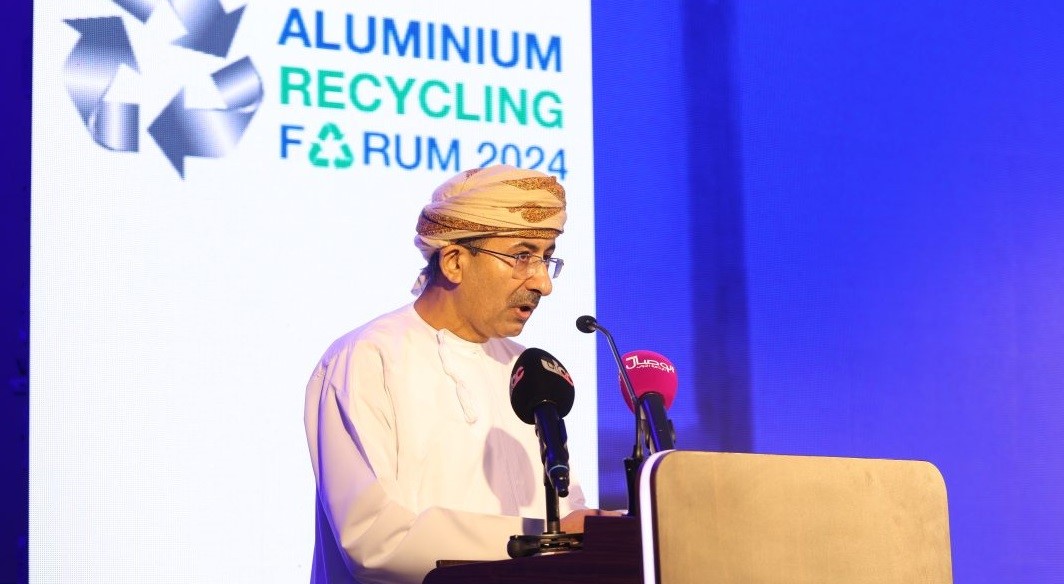

Oman recently played host to its inaugural Aluminium Recycling Forum at the JW Marriott Hotel in Muscat on February 14. Dr Abdullah bin Ali al Amri, Chairman of the Environment Authority, graced the event, marking a significant step towards sustainable practices in the country.

The forum, spearheaded by Sohar Aluminium and supported by the Environment Authority, brought together influential figures from various sectors, including the aluminium industry, waste management, academia, and governmental bodies. Eng Said bin Mohammed al Masoudi, CEO of Sohar Aluminium, focused on the circular nature of aluminium, a material inherently designed for recycling.
Environmental and economic benefits
Aluminium scrap recycling emerged as a focal point, with discussions centring on its potential to offer both environmental and economic advantages. Notably, the CEO highlighted that the production of recycled aluminium consumes a staggering 95% less energy than that from raw materials, aligning with global efforts to reduce carbon footprints.
Potential economic opportunities
The economic potential of aluminium recycling was underscored, showcasing its ability to generate jobs across various stages of the recycling process. From the collection and sorting of scrap materials to processing and manufacturing, the industry presents a spectrum of opportunities. Nizar bin Salem al Araimi, Director of the Environment Department in North Al Batinah Governorate, emphasised the pivotal role of a circular economy in job creation and private sector empowerment.
Challenges and solutions – Middle Eastern Countries
Despite the growth in primary aluminium production in the Middle East, recycling is still in its infancy. Key challenges include the export of scrap materials and the composition of scrap aluminium, often mixed with other alloys. Marlen Bertram from the International Aluminium Institute highlighted the need for investments in sorting technologies to overcome these hurdles.
Karima Saud al Raisi, acting Senior Manager of Material Recovery at Oman Environment Services Holding (be'ah), discussed essential enablers for the local aluminium recycling industry. Restricting aluminium export, creating a digitised online platform, and implementing digital monitoring were identified as crucial steps to boost the sector.
The International Aluminium Institute provided compelling data, stating that adopting aluminium recycling in the GCC could significantly reduce greenhouse emissions associated with production, from 11 tons to a mere 0.6 tons of CO2e, marking a monumental 95% reduction.
Oman's vision for a circular economy aligns with global efforts, emphasising sustainability, job creation, and environmental responsibility. The Aluminium Recycling Forum served as a pivotal platform to address challenges and explore avenues for growth in Oman's aluminium recycling sector. If you wish to learn more about the international aluminium recycling sector, please have a look at AL Circle's special report, World Recycled Aluminium Market Analysis.
Responses








